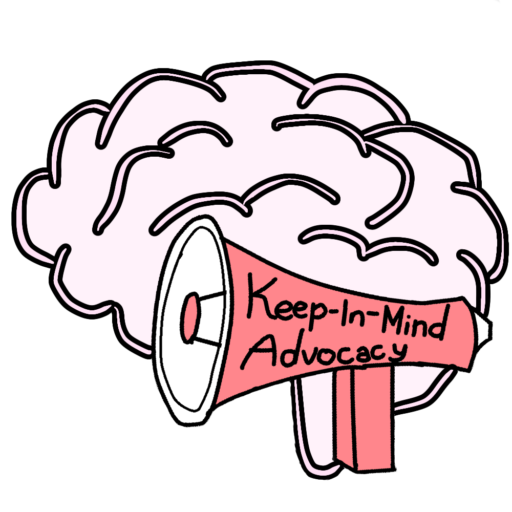Autism Genetics and Interventions: A Literature Review in Psychology
Written by Jade Hill, for a Psychology Literature Review assignment. All intellectual rights go to the owner of Keep-In-Mind Advocacy, Jade Hill.
Autism Spectrum Disorder is a relatively new diagnosis, only being coined in the DSM-5 (American Psychiatric Association, 2013; Centers for Disease Control, 2022). As of statistics from 2018, 1 in 66 children in Canada are diagnosed with ASD (Public Health Canada, 2018). Because of this, it is imperative that a solid understanding of ASD is general knowledge within the scientific community. Since Autism is not as well-known of a diagnosis, it is surrounded by stigma within and around the clinical community. To combat this, a thorough analysis of how Autism Spectrum Disorder works is imperative. The connection between ASD and genetics can explain much of what is not known about the diagnosis and fill in gaps in literature related to the diagnosis. Through this literature analysis, a firm urge for the clinical understanding of how genetics influence Autism Spectrum Disorder, and can be used to improve interventions, to provide appropriate interventions in clinical psychology will be conveyed.
Bridging the gap between genetic research and clinical practice will give the academic world a more thorough understanding of Autism Spectrum Disorder (Thapar & Rutter, 2021). To do this, insight into neurological pathways in identifying underlying ASD, will allow for clinicians to approach Autism in an appropriate manner. Combining the genetic variability of ASD with comorbidities will allow for those living with Autism to be more equipped for a neurotypical world (Genovese & Butler, 2020; Eyering & Geschwind, 2021). Knowing and understanding to what extent genetics play a role in Autism Spectrum Disorder can allow for more effective support in Autism interventions (Vorstman et al., 2017). To further bridge this gap, reliable literature on comorbidities and genetic structure, relies on thorough research (Lim et al., 2022). Studying research clusters and interdisciplinary collaboration can emphasize genetic research’s influence on interventions in ASD, and further bring Autism understanding to the clinical realm.
Genetics play a significant role in understanding the predisposition of Autism Spectrum Disorder. Because each individual is different, some approaches to ASD may not properly provide the support someone requires. Through genetic research, interventions in the clinical realm can be far more personalized to best support the individual (Vorstman et al., 2017). Identifying the genetic variations associated with Autism specifically can ensure that the best support is provided (Lim et al., 2022). Furthermore, the identification of genetic loci and alterations that increase the likelihood of Autism Spectrum Disorder, can allow for clinicians to tailor care to suit the individual (Thapar & Rutter, 2021). Taking this individualization approach may target specific biological pathways and allow for the minimalization of negative effects. Instead of taking a cookie-cutter approach to working with Autism, developing ways of individualizing care for ASD through understanding the influence genetics have in Autism Spectrum Disorder, can allow for individuals to be able to adapt to and thrive in a neurotypical environment.
Genetic analysis in Autism Spectrum Disorder can provide insight into the broadening concept of Autism and the role of monogenetic disorders (Thapar & Rutter, 2021). It allows for the identification of genetic variations associated with Autism and can improve treatment strategies and interventions. Understanding genetic variations and neurobiology of ASD can allow for diagnosis in Autism to be seen earlier in life (Genovese & Butler, 2020). Through stronger understanding of Autism Spectrum Disorder genetics, interventions can be delivered sooner than later, allowing for the time to adapt to different needs and thought patterns. Identifying the specific genetic abnormalities in an individual, earlier on in life, can allow for professionals to adjust their strategies to ensure that interventions are delivered based on the individual’s needs.
Through understanding the genetic influence in Autism Spectrum Disorder, genetic research studies and clinical trials can provide information necessary for a more targeted approach to interventions. Because genetic research in Autism is not as far advanced as other neurological developmental disabilities, it is not clear what the canonical biomarkers are (National Institute of Neurological Disorders and Stroke, 2022; Eyering & Geschwind, 2021). Though ASD is known as a heritable disorder, understanding what gene is responsible for certain traits of Autism, will allow for interventions to be more thorough. The way to understand this, would be through far more research studies. More research studies would further allow for gaps in Autism Spectrum Disorder understanding, and to provide a more comprehensive overview and clear overview of data known (Lim et al., 2022). Since there is such a data gap, understanding literature and research in Autism will allow for more room to understand possible interventions that work differently based on the individual. Sandbank’s (et al., 2020) study outlining and examining different intervention methods in children with Autism Spectrum Disorder includes; developmental, behavioral, naturalistic developmental behavioral interventions (NDBIs), sensory-based, therapy animals, computer-based interventions, TEACCH, and cognitive behavior therapy (CBT). Connecting a solid understanding of the genetic influence on Autism Spectrum Disorder with the interventions suggested in this study, can increase supports, and ensure that each individual is getting the support that they need. Ensuring a connection between studies, clinical trials, and other writings, can provide a stronger support system for individuals with Autism. Understanding genetics would assist in these clinical trials, further encouraging open analysis of Autism Spectrum Disorder.
Autism Spectrum Disorder is a monogenetic neurological developmental disability (Thapar & Rutter, 2021; NINDS, 2022). Further understanding of the influence of genetics on Autism, will ensure that interventions for supporting individuals with ASD are useful, rather than broad. Bridging the gap between the clinical and genetic research branches will allow for a firmer understanding of Autism Spectrum Disorder. Genetic research would assist in increasing knowledge regarding comorbidities associated with Autism, and further increasing appropriate interventions. Personalized medicine influenced by genetic research, will increase the probability that certain interventions for ASD will be more effective. Using genetic research would increase in effectivity rates for interventions, as genetics would allow for Autism Spectrum Disorder to be tailored to the individual. Furthermore, identifying genetic variation associated with ASD would allow for interventions to be delivered earlier in life, rather than later. Implementing these strategies earlier in life, would allow for the individual to spend less time learning the tools, and allow them to use the strategies sooner. In terms of clinical and research trials, using genetic research would encourage further analysis of Autism Spectrum Disorder. The influence of genetic research in Autism will allow for interventions to be more tailored, understood, and connected to the individual.
References
American Psychiatric Association. (2013). Diagnostic and statistical manual of mental disorders (5th ed.). https://doi.org/10.1176/appi.books.9780890425596.
Centers for Disease Control and Prevention. (2022). What is autism spectrum disorder?. https://www.cdc.gov/ncbddd/autism/facts.html.
Eyring, K. W., & Geschwind, D. H. (2021). Three decades of ASD genetics: building a foundation for neurobiological understanding and treatment. Human Molecular Genetics, 30(20), R236–R244. https://doi.org/10.1093/hmg/ddab176.
Genovese, A., & Butler, M. G. (2020). Clinical assessment, genetics, and treatment approaches in Autism Spectrum Disorder (ASD). International Journal of Molecular Sciences, 21(13), 4726-. https://doi.org/10.3390/ijms21134726.
Lim, M., Carollo, A., Dimitriou, D., & Esposito, G. (2022). Recent developments in autism genetic research: A scientometric review from 2018 to 2022. Genes, 13(9), NA. http://dx.doi.org/10.3390/genes13091646.
Autism spectrum disorder. (n.d.). National Institute of Neurological Disorders and Stroke. https://www.ninds.nih.gov/health-information/disorders/autism-spectrum-disorder#:~:text=Autism%20spectrum%20disorder%20(ASD)%20refers,that%20affect%20communication%20and%20behavior.
Public Health Agency of Canada. (2018, April 19). Autism spectrum disorder among children and youth in Canada 2018. Retrieved March 20, 2024, from https://www.canada.ca/en/public-health/services/publications/diseases-conditions/autism-spectrum-disorder-children-youth-canada-2018.html.
Sandbank, M., Bottema-Beutel, K., Crowley, S., Cassidy, M., Dunham, K., Feldman, J. I., Crank, J., Albarran, S. A., Raj, S., Mahbub, P., & Woynaroski, T. G. (2020). Project AIM: Autism intervention meta-analysis for studies of young children. Psychological Bulletin, 146(1), 1–29. https://doi.org/10.1037/bul0000215.
Thapar, A., & Rutter, M. (2021). Genetic advances in autism. Journal of Autism and Developmental Disorders, 51(12), 4321+. http://dx.doi.org/10.1007/s10803-020-04685-z.
Vorstman, J. A. S., Parr, J. R., Moreno-De-Luca, D., Anney, R. J. L., Nurnberger Jr, J. I., & Hallmayer, J. F. (2017). Autism genetics: opportunities and challenges for clinical translation. Nature Reviews Genetics, 18(6), 362+. http://dx.doi.org/10.1038/nrg.2017.4.


Comments are closed